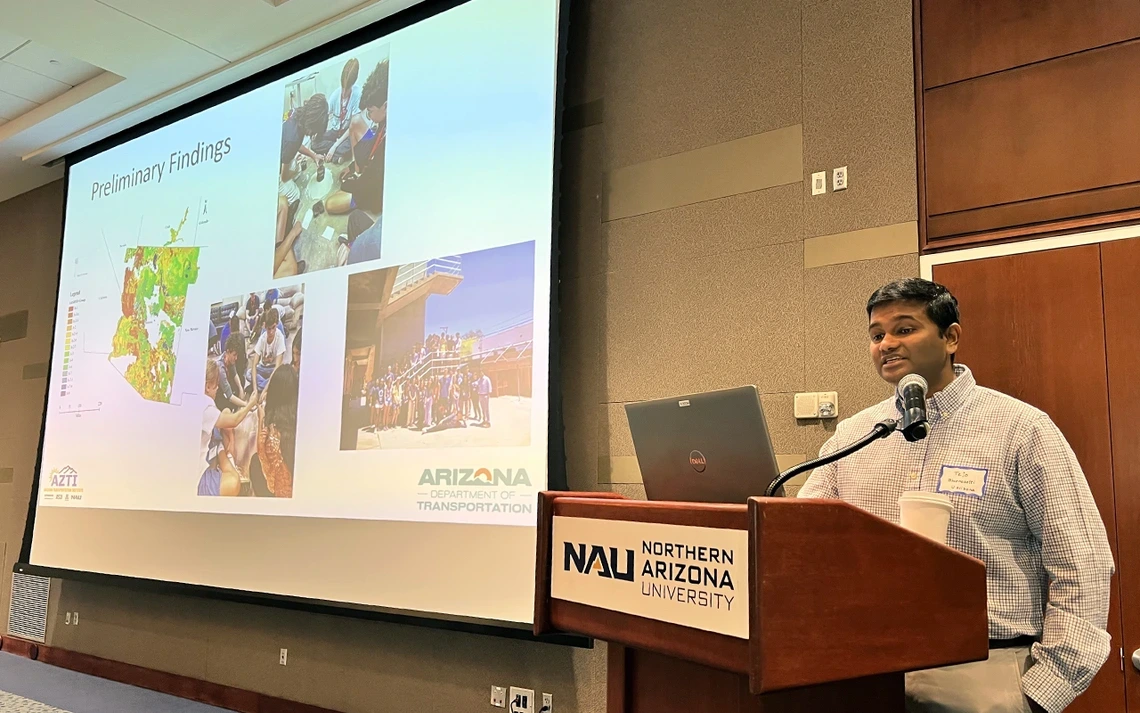Yue Wang investigates native plant recovery to improve Arizona's roads

At the 2025 Arizona Transportation Institute Summit, U of A assistant professor Tejo Bheemasetti shows data associated with the number of battery-laden EVs on the road.
The state is looking toward safer, more durable roads within the next few years, thanks to the Arizona Transportation Institute’s fast-tracked infrastructure research – tackling challenges ranging from electric vehicle infrastructure to native plant landscaping and safety management.
AZTI launched in 2024 with the University of Arizona at the helm. The tri-university consortium includes faculty members and students in the U of A College of Engineering and at Arizona State University and Northern Arizona University. With funding from ADOT, the Federal Highway Administration and the Arizona Board of Regents, AZTI has initiated more than 18 projects, some of which are already nearing completion.
Researchers presented their findings on Aug. 8 at NAU during the institute’s second annual summit.
Yue Wang, assistant professor of systems and industrial engineering at the U of A, and Daoqin Tong, ASU professor in the School of Geographical Sciences and Urban Planning, are developing landscaping methods to accelerate native plant recovery, minimize roadway degradation from wildfires and erosion, and reduce maintenance expenses for Arizona taxpayers.
Wildfires destroy native plants that naturally reduce erosion from flooding and protect roadways. In the five years it takes the species to recover, invasive plants such as buffelgrass turn a largely fire-resistant desert into a highly flammable grassland.
“For us, the development of AZTI is a lifesaver,” said Greg Byres, state engineer and deputy director for transportation with the Arizona Department of Transportation, or ADOT.
